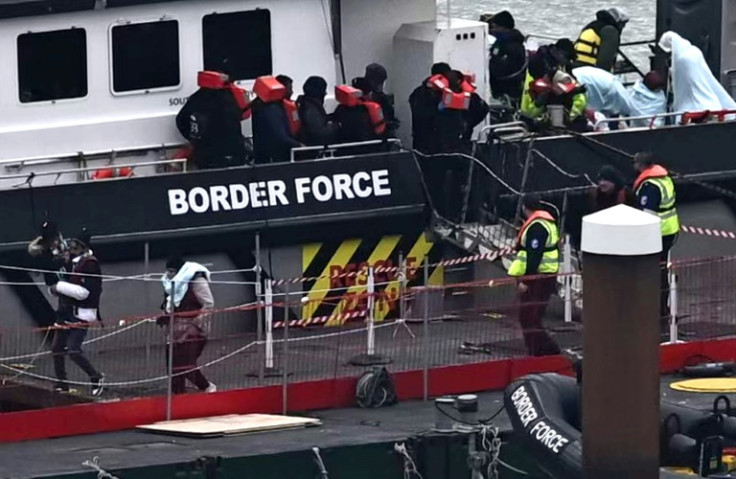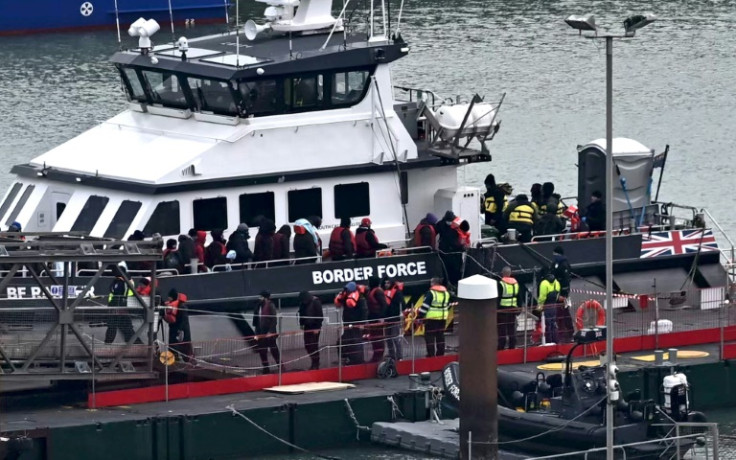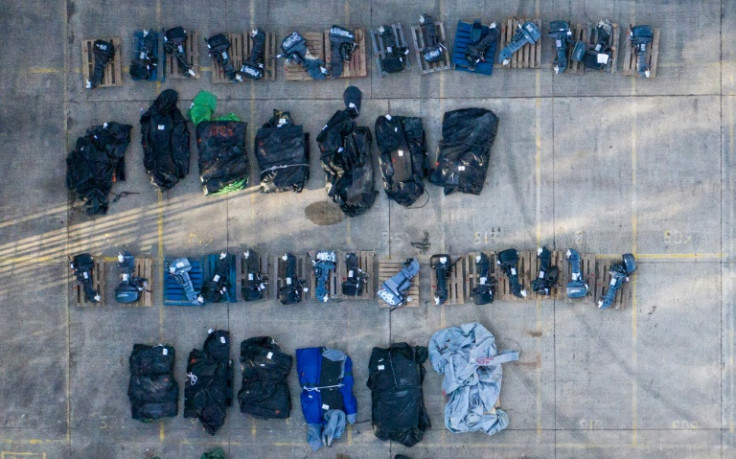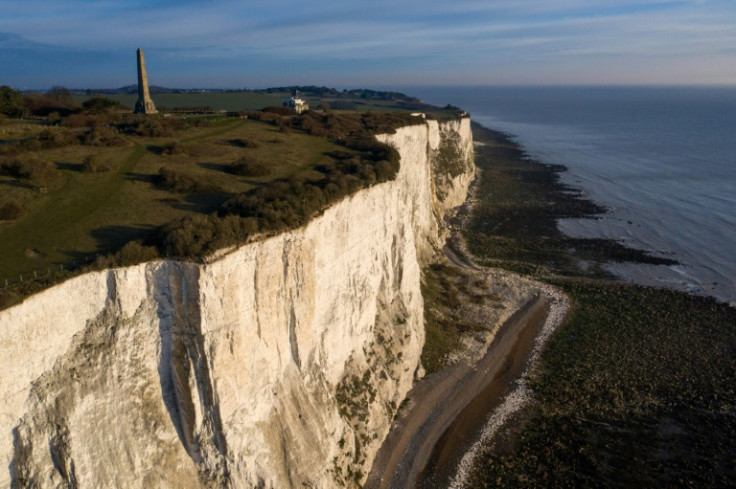UK to unveil latest bid to stop migrants crossing Channel
The new legislation comes days before a summit Friday with French President Emmanuel Macron, where enhancing cooperation to "stop the boats" is expected to feature high on the agenda.

The UK government will on Tuesday unveil hotly anticipated legislation aimed at stopping migrants crossing the Channel illegally on small boats, banning such arrivals from claiming asylum and promptly deporting them.
The draft law, which if passed will also prevent anyone deported after making the journey from re-entering the UK and ever claiming British citizenship, has been heavily criticised by rights groups.
They claim it is unworkable and will unfairly target refugees, but ministers insist the new rules are needed to curb the dangerous voyages across one of the world's busiest shipping lanes.
Their perilous nature has been underlined by several tragedies in recent years, including in November 2021 when at least 27 died after a dinghy deflated.

Prime Minister Rishi Sunak, who took power last October, has said stemming the arrivals is one of his government's top priorities this year as Conservative voters and media ratchet up pressure on the issue.
The new legislation comes days before a summit Friday with French President Emmanuel Macron, where enhancing cooperation to "stop the boats" is expected to feature high on the agenda.
A spokeswoman for Britain's interior ministry, which is responsible for border enforcement, said France was "vital" in curbing the crossings, while stressing the need for the law.
"(It) will ensure that people arriving in the UK illegally are detained and promptly returned to their home country or a safe third country," she added.

The contentious plans follow last year's Nationality and Borders Act, which among other measures permitted the government to send some asylum seekers to Rwanda.
The High Court has ruled the scheme legal after a challenge, but that decision is facing further appeals, meaning no flights there have yet taken place.
Ministers had hoped the threat of a one-way ticket to Kigali, where migrants would remain if accepted for asylum, would deter the cross-Channel journeys.
But more than 45,000 migrants arrived on the shores of southeast England on small boats last year -- a 60 percent annual increase on a route that has grown in popularity every year since 2018.
Nearly 3,000 have arrived so far this year, another jump compared to the same period in 2022.
In the latest crossings, scores of migrants including children were brought ashore to the southeast English port of Dover on Border Force vessels on Monday.

The government insists the situation requires it to go further, and that the new legislation will not breach Britain's obligations under the European Convention on Human Rights (ECHR).
However, it has yet to be confirmed to which so-called "safe third countries" cross-Channel migrants will be deported.
Rights groups and opposition politicians have castigated the plans.
"It's unworkable, costly and won't stop the boats," said Enver Solomon, CEO of the Refugee Council.
Currently, anyone claiming asylum in the UK is allowed to remain in the country while their case is heard under ECHR and UN protections. They are housed by the government in hotels and other accommodation, but cannot work legally.
The spike in cross-Channel journeys has fuelled a growing backlog in asylum cases, with more than 160,000 waiting for a decision by the start of this year -- a yearly increase of more than 60,000.
Refugee advocates are urging the government to offer more alternative legal routes to deter the Channel crossings.
Sunak's spokesman told reporters that new routes would be established "once we have control of our borders".
"We want to continue to be an open and generous country," he added, noting ministers wanted to impose the "comprehensive" new measures "as quickly as possible".
In Dover, the scene of an anti-migrants protest and counter-demonstration at the weekend, locals appeared uniformly sceptical about the draft law.
"It's for show -- even the government knows it's not going to work," said a 58-year-old resident, who asked to remain anonymous, adding it was simply "red meat to the base".
Matthew Stevens, 43, agreed its stipulations "won't happen".
"Too many people are profiting for it to stop," he said of the criminal gangs who manage the illegal cross-Channel operations.
© Copyright AFP 2025. All rights reserved.





















